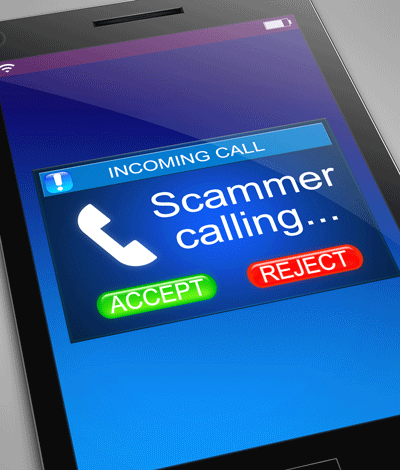MADISON HEIGHTS — If you receive a call from what appears to be the Madison Heights Police Department, be careful. It may be a scam.
Near the end of August, Madison Heights police received multiple complaints from residents who claimed they had been contacted by someone calling from the number (248) 585-2100 — the phone number for the police station at 280 W. 13 Mile Road.
The caller claimed they were with the Madison Heights Police Department, and said the victim had missed court and now had a warrant for their arrest. The caller then instructed the victim to get a payment voucher at their local 7-Eleven convenience store, and to meet them in the parking lot at the police station.
Madison Heights Police Lt. David Koehler said this is a blatant scam, one that uses technology to spoof the department’s number on caller ID systems.
“The first thing to understand here is that no police department is going to request payment in the form of a gift card from 7-Eleven or anywhere else,” Koehler said. “The victims were contacted by phone and threatened with a warrant. The suspects requested money, but real police departments will never do that.
“And if the person is at your door, claiming they’re police and asking for money, request ID,” Koehler said. “Police have to carry ID. Be especially sure to do this if they’re in an unmarked car. Then call the MHPD to confirm the situation anyway. Call us, and we will say if we sent a guy, or we will sometimes send a guy down to confirm.”
Spoofing a phone number is an example of an imposter scam, where the con artist uses technology to pose as someone else.
One common imposter scam features a person posing as a relative such as a grandchild needing money for an emergency situation. In another imposter scam, the con artist instead poses as a worker from a utility company claiming there are overdue bills in need of immediate payment.
The con artist may also claim they are with the Internal Revenue Service or some other government agency. They may even pose as a single person looking for a relationship, when they’re really just trying to exploit loneliness for financial gain.
The con artist may also claim they’re from a health care provider, tech support or from a sweepstakes company. Increasingly, scammers are using artificial intelligence to make their scams look and sound more convincing.
In most cases, the scam features urgent requests or limited time offers, and a believable story as a pretext, followed by a request for money or personal information.
When money is requested, the scam usually asks for funds to be transmitted via payment methods that are difficult to trace, such as gift cards, cash cards, wire transfer, or cryptocurrency, including bitcoin.
Many scammers will call or email random people until they come across a victim who engages with them. They will try to reel in the listener by insisting there is no time to do anything other than what they’re demanding.
They may threaten legal action or termination of services or claim that someone is in danger. But police say you should never give out your personal or financial information such as your Social Security number, birthdate, credit card number, bank account number, or any other payment unless you have fully confirmed the identity of the person asking for it.
Residents can call their local police department with any suspicions they may have, or if they need assistance vetting the authenticity of the caller. If they feel they have fallen victim to a con, they can contact the police to file a report.
Possible scams or suspicious behavior can also be reported to the Federal Trade Commission by calling 1-877-FTC-HELP, or online at reportfraud.ftc.gov.
Koehler emphasized that if an unknown caller or visitor asks for a payment, it could be a scam.
“Whether by phone or in person, police are never going to ask for money,” Koehler said.
 Publication select ▼
Publication select ▼















